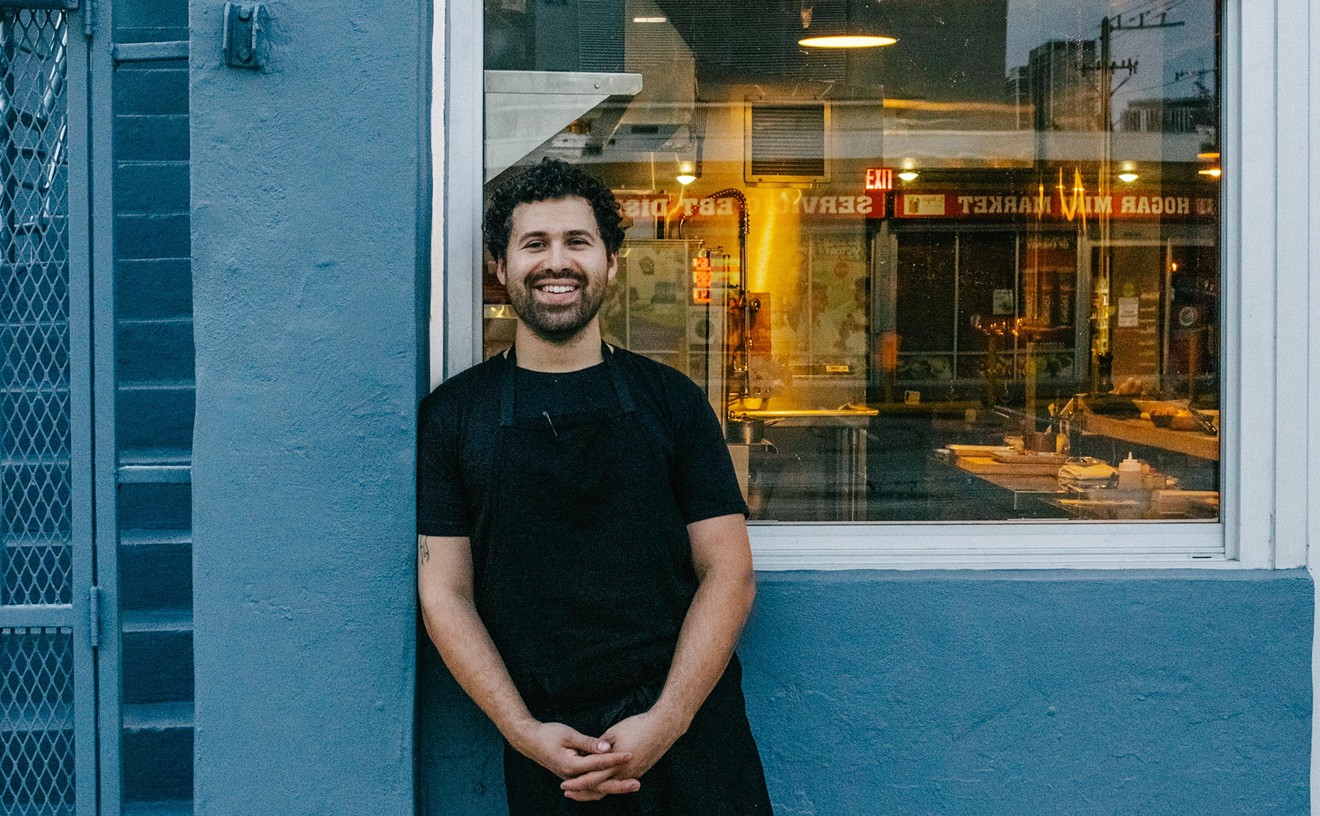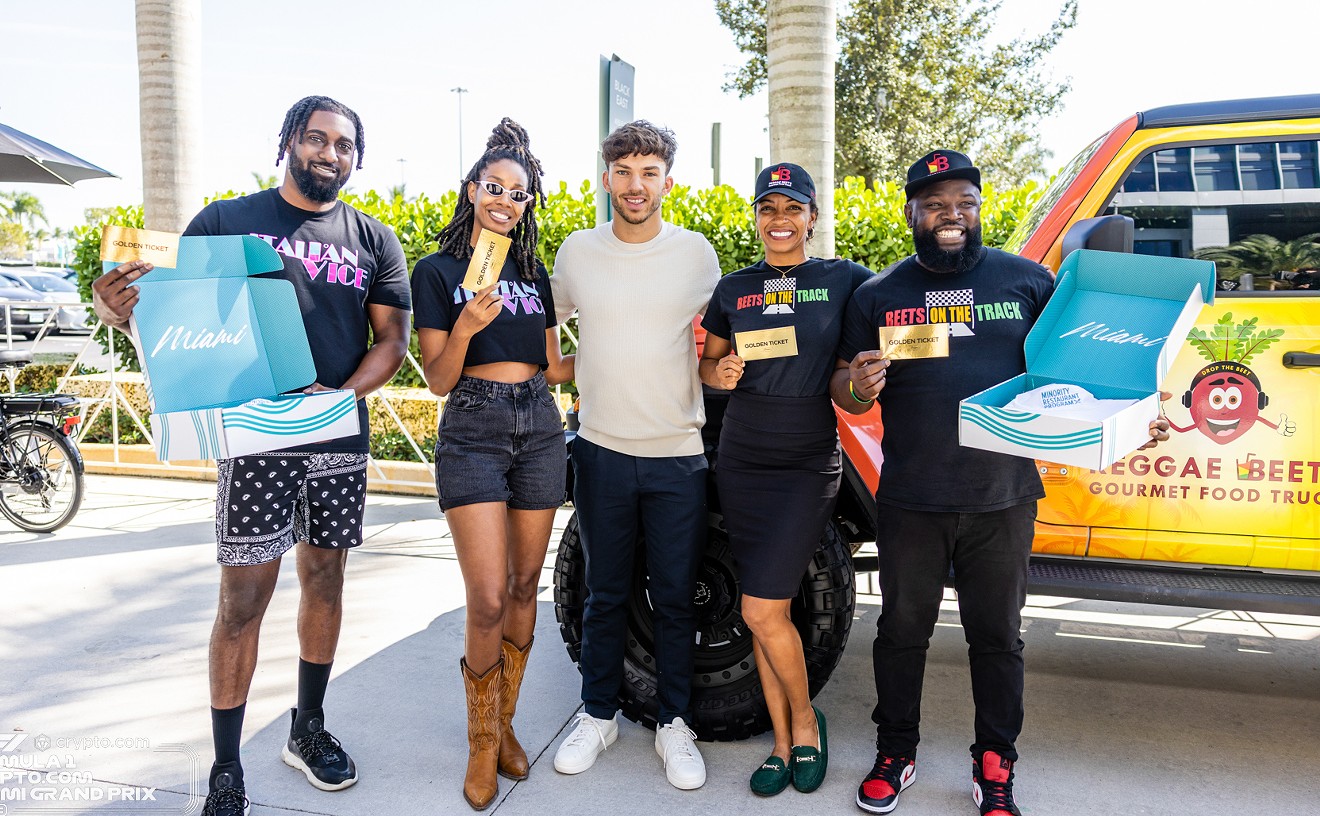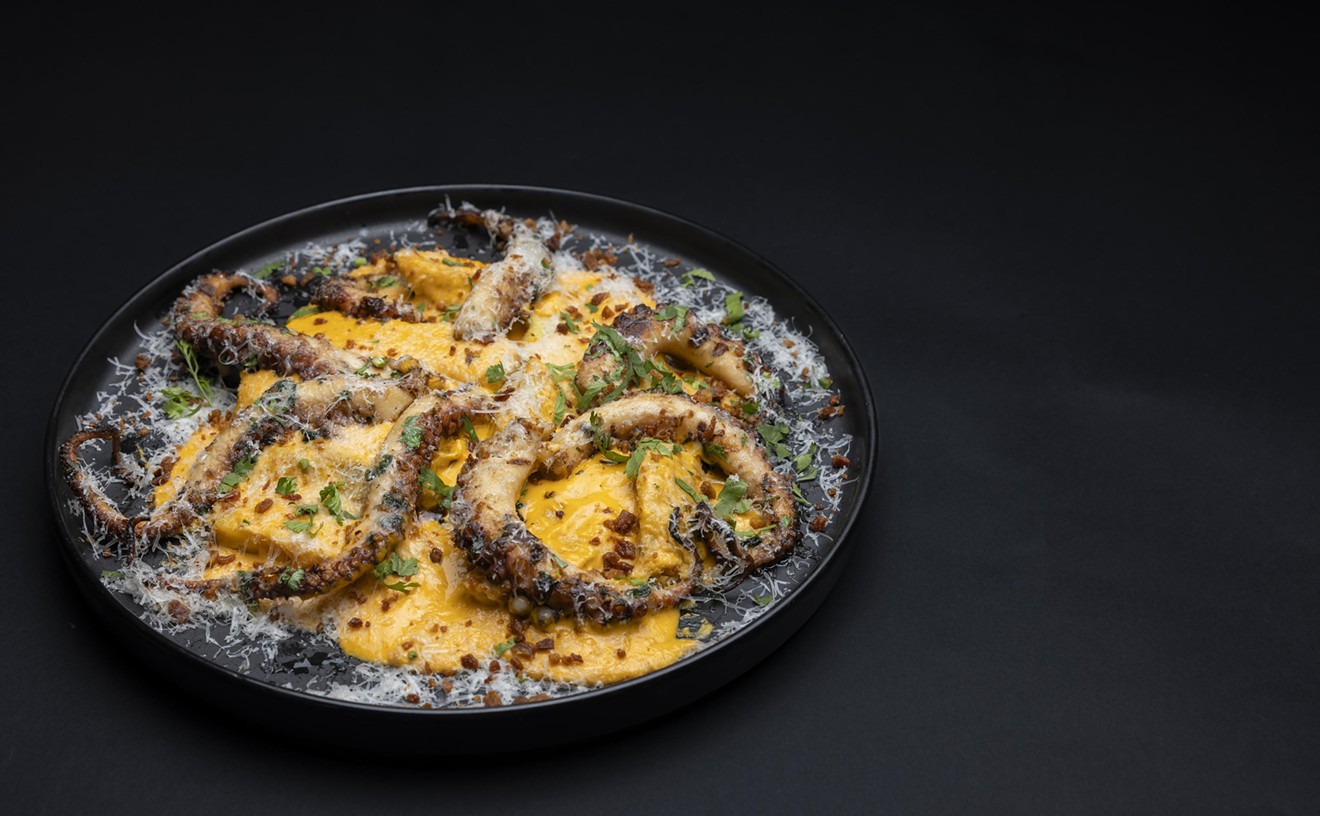This is part two of our interview with Kris Wessel, chef/owner of Red Light Little River. You can read the first part of the interview here.
Three influences that, culinarily speaking, got you to where you are today.
Growing up in New Orleans. Travelling through Europe. And the lack of Miami being a real food town, which motivated me to open up Paninoteca, Liaison, and Red Light.
How important is the notion of value when dining out?
That goes back to the concept of this place. I created Red Light not to have a high degree of technique, not to be overpriced, but to be a good value across-the-board -- wine, food, everything. That was the idea three years ago, when I was coming off working at Elia in Bal Harbour. I had this location, and it's what I thought we in the food industry should be looking at.
What was the problem with Elia?
Elia was started by a gentleman from Greece who poured a lot of money into it. He had a grand Mediterranean vision, and brought in 5 chefs to open the restaurant, spent $2 million to build it out...it was just an ill-conceived idea from the get-go. Which we see a lot of in Miami. Like Evolution, with David Bouley; he's a fantastic chef, and a fantastic restauranteur. It just didn't translate to Miami. We just saw Au Pied de Cochon spend $3 million dollars (and close). They have an $18 million dollar machine in Mexico City, but what works somewhere else doesn't necessarily work in Miami. And I get tired of people thinking it does.
Where is Miami at as a food city?
I love places like Scarpetta, Eos, and Hakkasan coming in, because they're saying 'We're going to do it in Miami, we're going to give Miami this high quality and high service,' But what I don't see more of are individual efforts on the smaller scale coming out of the box. Kinda like me.
Taking a gamble?
People say I rolled the dice, but I didn't roll the dice; I built this place by hand. I build the clientele, do whatever I can to survive. It was, and still is, hard work. Two years, cash-flowing it every week, no big partners -- none at all in fact. I just bought out my partners. It's great.
What does Miami need to do to get more small-scale places?
More guys taking a chance. Even if it's just a sandwich shop, or
whatever. Break out! Michelle's pastry chef, Vanessa Paz, who once
worked for me, and my pastry chef, who I got back from Au Pied de
Cochon -- she was with me at Liaison -- I never stop trying to
encourage them to do something on their own. I told Vanessa, 'I think
you should take this spot three blocks down, it would be great for a
bakery. We need a bakery in this neighborhood.' I instigate these
things, and then I hear slapback, like Michelle telling me 'What are
you doing telling my pastry chef to leave me?' But I tell her straight
on, or Michael, or whoever: 'We need this. Back them up.' I mean I'm
the worst. I think you should train staff to run your kitchen, whether
for a number of months or years, and then send them on their way. It's
great for the scene, and for the community. Maybe I'm a hopeless
romantic.
Is it that important for chefs to have a place of their own?
Not everybody is an entrepreneur, but if you have creativity as a chef, you should find an avenue to explore it.
With the increase of high-stakes corporate-backed restaurants, those avenues can't be getting easier to find.
Yeah, in the '80s and '90s, you would have hotels open up
restaurants, and they wouldn't really know what to do -- so they'd hire
a chef to craft the cuisine. Now it's 'We're putting in a SushiSamba
here'. So you don't have that blank slate anymore, and it's actually
sad.
You went on a self-described "20-state romp" across the country
with your daughters (ages 6 and 12) last summer, and you returned very
high on Charleston's dining scene.
We stopped there for a night -- I wish I had three -- and I walked
around to the James Beard-nominated restaurant Fig, three other
restaurants, an oyster bar -- on foot, like I was in the Village. Just
bum-bum-bum-bum-bum -- and there's a great balance there, all different
funky concepts, and they all appear to be working. The hospitality, and
industry cohesion, was amazing. I was sitting around with some waiters,
bartenders, cooks at this one place, they were closing down for the
night, and they were so proud of their other restaurants and their
fellow industry people. 'That chef is great, and you should check this other place out.' These were restaurants talking about other restaurants!
And you don't really see that unity in Miami?
Not at all.
Plans for the future?
I want to get back to the idea of fine service and formal dining. I
yearn to create at a very clean, controlled level again. And I also
have a multitude of ideas on the very casual, street level too.
What do you think of the food trucks going around?
I think they're great. I love it. I wish someone would park one right
out front. I may do it myself. I see an oyster empanada...
Tomorrow, Part Three: A recipe from the chef.










